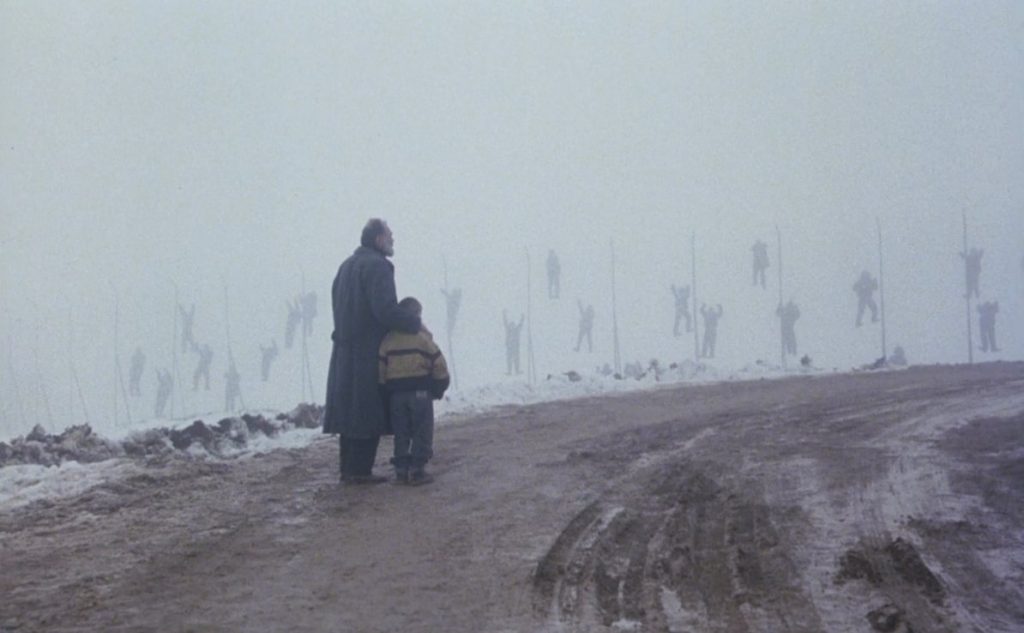Can you fit eternity and a day in 132 minutes?
Written and directed by Theo Angelopoulos, Eternity and a Day follows the old writer Alexandre (Bruno Ganz) and a little homeless boy over a day.
Alexandre falls ill and has very little time left. A day before checking in to the hospital, he meets a little boy (Anchilleas Skevis) who lives on the streets. The boy is an illegal immigrant from Albania, and is a part of a larger group of others whom face the threat of being sold to wealthy Greeks by gangsters. Alexandre becomes very much aware of the sweetness of life after he confronts with his impending death, so they go on a magical bus trip as he takes the boy home.
The film touches upon concepts of life and death through subtle implementations. The camera is wisely located outside of buildings to let the viewer hear the conversations but not be invited in them. Like the viewer, Alexandre is outside alone when he communicates with his neighbor through music. There is frequent use of abandoned buildings in the frame, signalling loneliness and departure. Another powerful imagery is with the projected clock. As if our time left is an illusion, or there is nothing tangible with time when there is so little left.

Children usually represent hope and redemption in films. Eternity and a Day opens with two imagery of children: first, the ones running into the sea with a joyous sense of freedom; second, the illegal immigrant kids who wipe windows for a few dimes. While it seems a child to have a long time ahead, how it will be spent is at the mercy of adults.
In the beginning we see the boy in an unsafe environment. He is either running away from danger of getting caught on the streets. After meeting Alexandre, we see him singing in the corner, as a symbol of love and bliss. Somewhat relatable today in the US, he gets scared by the police and indeed feels safe on the streets.
The sea is visible in most of the scenes, either at the beach or at the house with a view. It might resemble freedom for some, but the sea also comes up as an immense danger to these kids whose death sadly don’t bother many. The boy mourns for the lost boy Selim, asking what’s it like where he is, as the sea is endless and scary.
Reminding me of the tendency to see life as a collection of stories and memories toward the end, there is always a storytelling going on. They tell the story of the poet who buys words. Later on, the boy melts our hearts: “You’re smiling but I know you’re sad. Shall I buy you a few words?”

Their bus trip becomes an allegory of Alexandre’s life with people at fences, the musicians, and the poet. While the scene provides abundant imagery from the director’s imagination, it reminds me of the train ride in That Obscure Object of Desire in terms of psychology with a touch of surrealism.
The boy’s grateful smile as they meet triggers some lost feelings in Alexandre. He believes he can find redemption while saving the boy from kidnappers. He had made a lot of mistakes in the past, but past did pass, and he has nothing to lose now. When he consults his lost wife, she tells him: “Tomorrow will last eternity and a day.”
When Eternity and a Day won the coveted Palme D’Or at the 1998 Cannes Film Festival, the jury decision was unanimous. The heartwarming story of an old man and a little boy raises the basic existential question: When is a life worth living?
